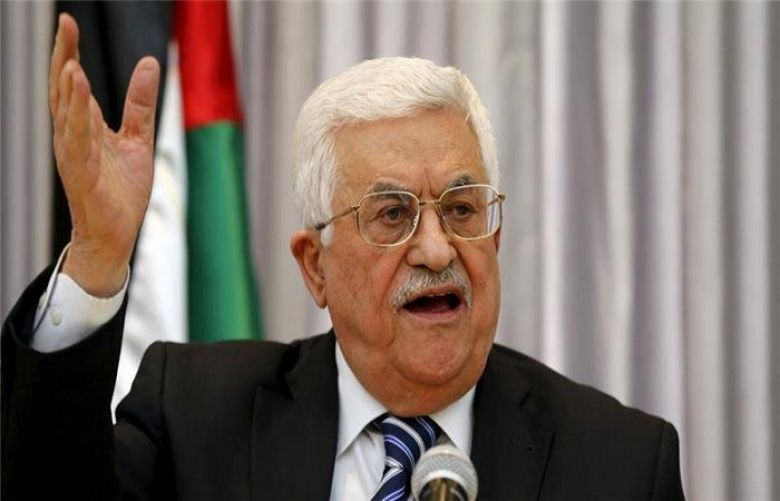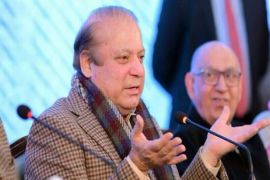Palestinian president Mahmud Abbas will refuse to meet US Vice President Mike Pence later this month following Washington's controversial policy shift on Jerusalem, an Abbas aide said on Saturday, as protests gripped the Palestinian territories for a third straight day.
A total of four people have now been killed and dozens wounded since Trump announced the move, which drew criticism from every other member of the UN Security Council at an emergency meeting on Friday.
“There will be no meeting with the vice president of America in Palestine,” Abbas's diplomatic adviser Majdi al-Khaldi told AFP.
“The United States has crossed all the red lines with the Jerusalem decision,” he added.
Egypt's Coptic Pope Tawadros II also cancelled a meeting with Pence with the church saying it “declines to receive” him in protest at Trump's announcement which failed to take into account the “feelings of millions” of Arabs.
That decision came a day after Egypt's top Muslim cleric, Ahmed al-Tayeb who heads Al-Azhar, also scrapped plans to meet the US vice president over the “unjust and unfair American decision on Jerusalem”.
There were fresh clashes on Saturday as Palestinian protesters in the occupied West Bank hurled stones at Israeli troops, who responded with tear gas, rubber bullets and live rounds.
In the Gaza Strip, mourners vented their anger at the funerals of two people killed by Israeli troops during clashes at the border fence on Friday and the two Hamas militants killed early on Saturday.
'Violent riots'
A woman was wounded by Israeli army fire during clashes at the border following one funeral attended by thousands in the Gaza Strip city of Khan Yunis.
An Israeli army statement said “violent riots have erupted at approximately 20 locations” in the West Bank and the Gaza Strip” with protesters throwing rocks, petrol bombs and rolling burning tyres at troops.
It said soldiers responded with unspecified “riot dispersal means” lightly wounding three Palestinians. In Israeli-annexed east Jerusalem police fired stun grenades to disperse Palestinian demonstrators on the main Salahedin street, an AFP cameraman said.
Israeli police said the protest was “illegal” and the Palestinian Red Crescent said 12 Palestinians were injured by shrapnel from grenades or by blows from police.
Intifada calls
There have been fears of a much larger escalation of violence after Hamas leader Ismail Haniya called for a new Palestinian intifada, or uprising, and analysts have been anxiously watching what happens next.
Dozens of protesters were wounded by rubber bullets or live fire in clashes in the occupied West Bank, the Gaza Strip and Jerusalem that followed the main weekly Muslim prayers on Friday. Tens of thousands also protested in Muslim and Arab countries, including Jordan, Turkey, Pakistan and Malaysia.
Saturday's pre-dawn air strike on a base of Hamas's military wing in Nusseirat, in the central Gaza Strip, was one of several, the Israeli military said. The Hamas health ministry in Gaza said the two dead men were members of the movement's armed wing, which has fought three wars with Israel since 2008.
On Friday night, a rocket hit the southern Israeli city of Sderot although Israeli public radio said it did not explode and did not cause any casualties. The Israeli military said that its Iron Dome air defence system intercepted an earlier rocket fired from the Palestinian enclave.
The military retaliated on Friday night with air strikes on what it said were two targets and the Gaza health ministry said 14 people were wounded, among them women and children.
A previously unknown Salafist group calling itself the Salahedin Brigades claimed responsibility for one of the attacks. But the Israeli army said it held Hamas responsible for all attacks from territory under its control.
US isolated
Trump's decision drew lavish praise from Israeli Prime Minister Benjamin Netanyahu but has sparked a worldwide diplomatic backlash.
Five European countries on the UN Security Council insisted the new US policy was not consistent with past resolutions, including one that declares east Jerusalem to be Israeli-occupied.
The meeting was requested by eight of the 15 members of the council but was largely symbolic as no vote on a resolution was planned because the US wields veto power.
Trump said his defiant move — making good on a 2016 presidential campaign pledge — marked the start of a “new approach” to solving the Israeli-Palestinian conflict.
But many analysts question how a balanced agreement can be reached by granting such a major Israeli demand before negotiations have even started.







